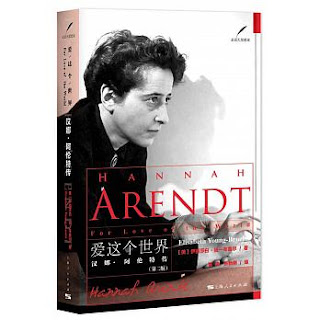2018年4月19日
前陣子有譯者說,他在台灣時間的半夜邊譯邊詛咒作者,所以人在美國的作者白天應該常常打噴嚏。
我看到後會心一笑,想起一年前自己一段難熬的日子。
當時有人跟我說:「你以後不要接這麼難的書了。」
我答道:「我會看著辦。在譯的是我,我自己最知道該不該接。其實我接這本也沒有後悔,因為雖然譯得辛苦,也挺開眼界的。」
話是這麼說,但譯到該書最難的一章時,我心裡其實頗感後悔。哎,要開眼界,其實不必接譯這種書。像下面這種文字,看得似懂非懂,譯起來更是頭痛萬分,譯完也沒有什麼滿足感,只是惶惶而已。
Haraway, in an
insightful essay on ‘Teddy Bear patriarchy’ in the New York Museum of Natural
History, points out how ‘decadence – the threat of the city, civilisation,
machine – was stayed in the politics of eugenics and the art of taxidermy. The
Museum fulfilled its scientific purpose of conservation, preservation, and
production of permanence in the midst of an urban world that even at the turn
of this century seemed to be on the border of chaos and collapse.’ It opposed
to this world of troubled sociality a visual technology of exhibits deployed in
part as a means to communicate to the outside world a sense of the true
organicism of the natural order (founded on hierarchy, patriarchy, class and
family) which ought to be the foundation of stability for any social order. In
so doing, it explicitly used and continues to use primatology as a means to
produce or promote race, class and gender relations of a certain sort.
以下這段來自另一章,同樣是我很不想譯的那種文字。對我來說太抽象了。我想大部分人都讀不懂。
In most
description and analysis, culture and society are expressed in an habitual past
tense. The strongest barrier to the recognition of human cultural activity is
this immediate and regular conversion of experience into finished products.
What is defensible as a procedure in conscious history, where on certain
assumptions many actions can be definitively taken as having ended, is
habitually projected, not only into the always moving substance of the past,
but into contemporary life, in which relationships, institutions and formations
in which we are still actively involved are converted, by this procedural mode,
into formed wholes rather than forming and formative processes. Analysis is
then centred on relations between these produced institutions, formations, and
experiences, so that now, as in that produced past, only the fixed explicit
forms exist, and living presence is always, by definition, receding.
有時原文就是這麼難讀難懂,但看不懂譯文的人往往直接認為是譯者有問題(雖然有時確實也是譯者沒譯好)。
這是另一段我不想譯的那種文字,同樣有點抽象,但已經相對好一點:
It is largely
because of their ambiguities that mere words are capable of independent action
as forces in history. A term, a phrase, a formula, which gains currency or acceptance
because one of its meanings, or of the thoughts which it suggests, is congenial
to the prevalent beliefs, the standards of value. The tastes of a certain age
may help to alter beliefs, standards of value, and tastes, because other
meanings or suggested implications, not clearly distinguished by those who
employ it, gradually become the dominant elements of signification. The word
‘nature,’ it need hardly be said, is the most extraordinary example of this.
這就是為什麼我以前說過:「譯過艱澀著作的譯者,多少能明白為什麼有些翻譯文字很難讀,因為原文本身就很難讀,所以譯者即使已經盡可能避免硬譯直譯,也難以交出淺顯易讀的譯文。翻譯確實有其極限,譯者只能盡力而為。」
舉這些例子,也是希望說明一件事:讀者看不懂譯文,或覺得譯文很硬,有時不是譯者的問題,而是原文本身就是那麼硬、那麼難理解。
【這三段文字的譯文,付印的版本都有修改過,所以跟我交稿的版本略有不同。譯文就恕不在此提供了。】



